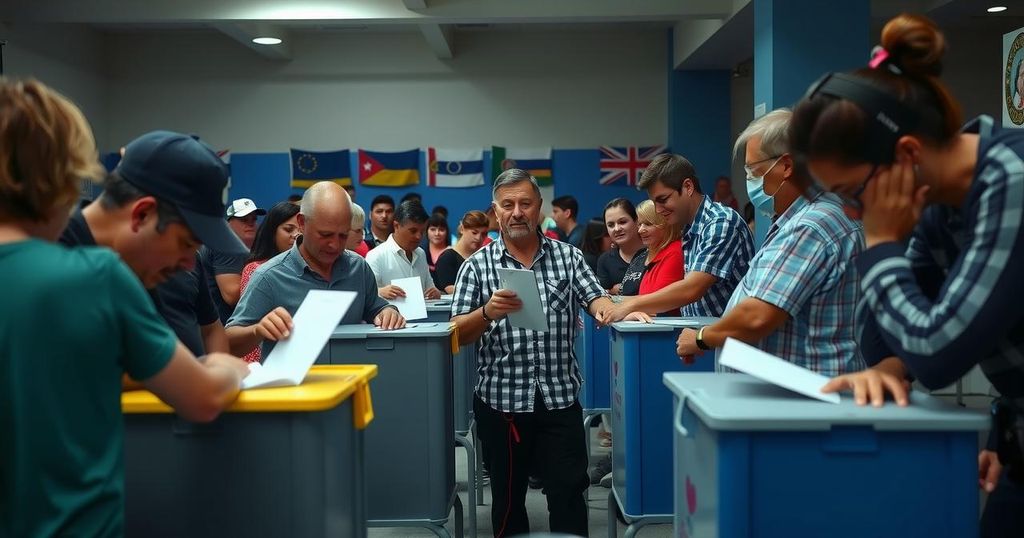Uruguayans are voting in a presidential run-off with leftist candidate Yamandú Orsi competing against right-wing candidate Alvaro Delgado. Polls suggest a tight race, with less than 25,000 votes potentially separating the two. Voters face a choice following five years of right-wing rule led by President Lacalle Pou, who has left a mixed legacy. The electoral atmosphere is notably less charged than in other region’s elections, reflecting Uruguay’s political landscape.
Uruguayans are casting their votes in a presidential run-off election, with the leftist coalition led by former President José Mujica striving to regain power following a five-year tenure of a right-wing administration. Polling stations opened at 8 a.m. local time and will remain open until 7:30 p.m., with initial results anticipated shortly after the polls close. This election pits Yamandú Orsi of the Frente Amplio (Broad Front) against Alvaro Delgado from the National Party, the latter representing the outgoing President’s centre-right coalition.
Final opinion polls indicated a closely contested race, with a potential margin of fewer than 25,000 votes distinguishing the candidates. Unlike the polarizing political environments seen in neighboring countries such as Argentina and Brazil, Uruguay’s political landscape is characterized by relative calm, fostering interactions across ideological boundaries. Despite President Lacalle Pou’s approval rating of 50%, the conservative coalition has faced criticism, mainly concerning rising crime rates, despite positive economic indicators including increased employment and wages.
Orsi, who previously garnered 43.9 percent of the votes in the first round, aims to present a modern leftist policy stance, whereas Delgado commands 26.8 percent, supported also by the conservative Colorado Party. Neither candidate has made significant new pledges in the recent weeks leading up to the election, with a prior televised debate seemingly lacking effectiveness in swaying undecided voters. Many citizens remain uncertain about their voting preference, emphasizing an unclear electoral mood as the election unfolds.
The outcome of this runoff is particularly crucial as it reflects whether Uruguay’s prevailing governmental parties will maintain their influence amid broader global trends of declining popularity for incumbents confronted with economic challenges. The electoral landscape could serve as a litmus test for the administration’s ability to adapt and respond to voter concerns, particularly in an environment marked by inflation and elevated living costs.
Uruguay’s electoral experience currently poses the question of whether traditional voting patterns will shift, diverging from the global norms where parties in power have been increasingly penalized by voters dissatisfied with economic conditions.
Uruguay, a small Latin American nation with a population of approximately 3.4 million, is conducting a pivotal presidential run-off election. This election emerges after five years under a conservative government led by President Luis Lacalle Pou. The primary candidates are Yamandú Orsi from the leftist Frente Amplio coalition and Alvaro Delgado from the National Party, representing the outgoing administration. Given the tight race and the recent political history, the implications of this election may significantly influence Uruguay’s future direction, particularly in light of the economic context affecting voters’ sentiments.
In conclusion, Uruguay’s current run-off election represents a crucial moment for both the leftist and conservative factions amid a tight race that reflects broader economic concerns faced globally. The candidates, Yamandú Orsi and Alvaro Delgado, seek not only to secure votes from their bases but also to attract those disaffected or undecided voters. As the polls close, observers await the outcome, which may hold significant implications for the nation’s political landscape and response to the economic pressures experienced by its citizens.
Original Source: www.aljazeera.com






